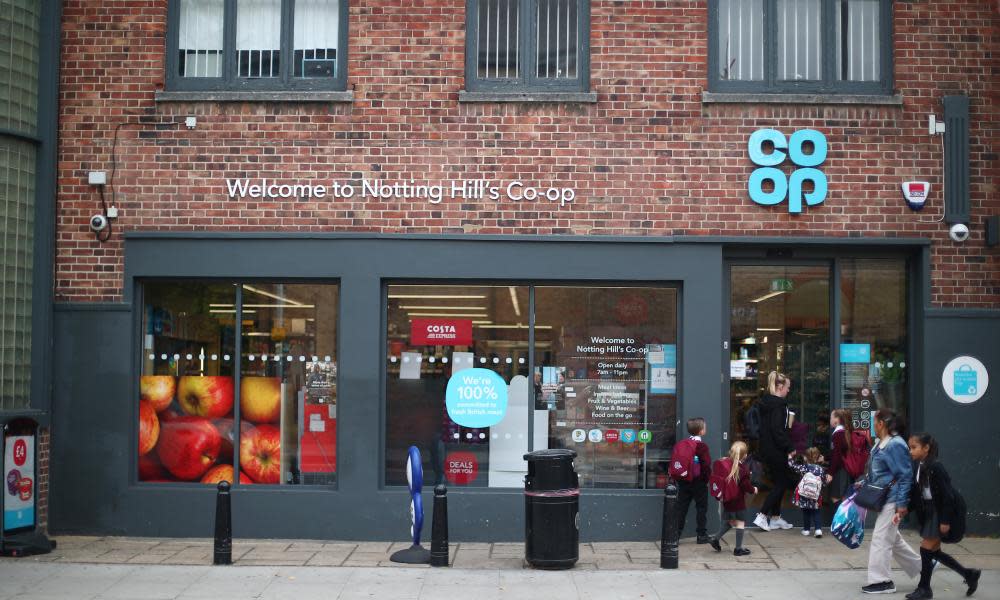Co-op to replace single-use carrier bags with compostables

The Co-op is to be the first major supermarket in the UK to replace single-use plastic carrier bags with lightweight compostable alternatives that shoppers can reuse as biodegradable bags for food waste.
The bags – a stronger version of the biodegradable bags the convenience chain has been trialling since 2014 – will be rolled out within weeks to almost 1,400 stores across England, Scotland and Wales, and then to all 2,600 shops.
The change will start in towns, cities and villages where the bags are accepted in councils’ food waste collections, and the phased rollout will replace an estimated 60m plastic single-use carrier bags of the sort that have become an environmental scourge. The new-style bags will cost 5p, but shoppers also have the choice of plastic 10p “bags for life” and £1 heavy-duty turquoise Co-op carriers.
The move is part of a broader ethical strategy to be launched by the Co-op next week, tackling plastic pollution as well as covering food waste, healthy eating, saving energy and Fairtrade products. The Co-op says it will ban single-use own-brand plastic products and reduce its overall use of plastic packaging within five years, and stop using hard-to-recycle materials such as black plastic.
“The price of food wrapped in plastic has become too much to swallow and, from today, the Co-op will phase out any packaging which cannot be reused,” said Jo Whitfield, retail chief executive of the Co-op. “The first step to remove single-use plastic will be to launch compostable carrier bags in our stores. They are a simple but ingenious way to provide an environmentally friendly alternative to plastic shopping bags.”
The supermarket’s pledge on plastic will see all its own-brand packaging become easy to recycle by 2023. It has promised to use a minimum of 50% recycled plastic in bottles, pots, trays and punnets by 2021.
However on Friday Lidl UK stole a march and said it would remove black plastic from its entire fruit and vegetable range by the end of the month, becoming the first UK supermarket to do so. It also plans to remove black plastic from its fresh meat, fish and poultry range by August next year.
Meanwhile, Asda revealed that it is “nearly halfway” towards meeting its 10% plastic reduction target, which it first unveiled in February this year.
Last week, Waitrose announced it was to remove plastic bags for loose fruit and vegetables and 5p single-use plastic bags from its stores by next spring.
In a first response to a growing public backlash against the huge volumes of plastic rubbish, most of the UK’s largest supermarkets signed up in April to the UK Plastics Pact, an industry-wide initiative that aims to transform packaging and reduce avoidable plastic waste.

 Yahoo News
Yahoo News 
